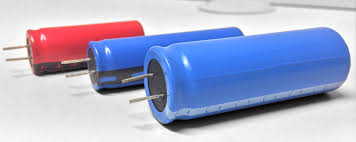
Breaking News
 BREAKING EXCLUSIVE: "This Wasn't Panic Buying Or Selling- IT WAS THEFT!"
BREAKING EXCLUSIVE: "This Wasn't Panic Buying Or Selling- IT WAS THEFT!"
 Somali Fraud is Miniscule Compared to Federal Reserve FRAUD
Somali Fraud is Miniscule Compared to Federal Reserve FRAUD
 Candace Owens Admits That Nevada Congressman Amodei Was Not Present...
Candace Owens Admits That Nevada Congressman Amodei Was Not Present...
 2025: The Year the Government Stopped Pretending It Cared About Freedom
2025: The Year the Government Stopped Pretending It Cared About Freedom
Top Tech News
 Laser weapons go mobile on US Army small vehicles
Laser weapons go mobile on US Army small vehicles
 EngineAI T800: Born to Disrupt! #EngineAI #robotics #newtechnology #newproduct
EngineAI T800: Born to Disrupt! #EngineAI #robotics #newtechnology #newproduct
 This Silicon Anode Breakthrough Could Mark A Turning Point For EV Batteries [Update]
This Silicon Anode Breakthrough Could Mark A Turning Point For EV Batteries [Update]
 Travel gadget promises to dry and iron your clothes – totally hands-free
Travel gadget promises to dry and iron your clothes – totally hands-free
 Perfect Aircrete, Kitchen Ingredients.
Perfect Aircrete, Kitchen Ingredients.
 Futuristic pixel-raising display lets you feel what's onscreen
Futuristic pixel-raising display lets you feel what's onscreen
 Cutting-Edge Facility Generates Pure Water and Hydrogen Fuel from Seawater for Mere Pennies
Cutting-Edge Facility Generates Pure Water and Hydrogen Fuel from Seawater for Mere Pennies
 This tiny dev board is packed with features for ambitious makers
This tiny dev board is packed with features for ambitious makers
 Scientists Discover Gel to Regrow Tooth Enamel
Scientists Discover Gel to Regrow Tooth Enamel
 Vitamin C and Dandelion Root Killing Cancer Cells -- as Former CDC Director Calls for COVID-19...
Vitamin C and Dandelion Root Killing Cancer Cells -- as Former CDC Director Calls for COVID-19...
High-density hybrid powercapacitors: A new frontier in the energy race

Chinese family-owned company Shenzhen Toomen New Energy is tough to find, at least on the English-language internet, but Belgian electronic engineer Eric Verhulst bumped into Toomen representatives on a tiny stand at the Hannover Messe expo in Germany back in 2018, while looking for next-gen battery solutions for an electric mobility startup he was running.
The Toomen team made a hell of a claim, saying they'd managed to manufacture powerful supercapacitors with the energy density of lithium batteries. "Of course, that's an unbelievable claim," Verhulst told us. "It's a factor of 20 better than what, for example, Maxwell had at the time. So I took my time, went over there, looked at their tests, did some tests myself, and I got convinced this is real. So at the end of 2018, we made an agreement to become their exclusive partner."
According to Verhulst, when he and his team got these "power capacitors" into the lab, they performed even better than they looked on the spec sheet. He tried to break them with charge and discharge rates up to 50C, more than double their rated capacity. They refused to fail. He left them fully charged for months at a time, and found them still well charged when he picked them up again. The University of Munich tested and confirmed their ability to handle temperatures down to -50 ºC (-58 ºF) and up to 45 ºC (113 ºF) without any heating or cooling systems.



